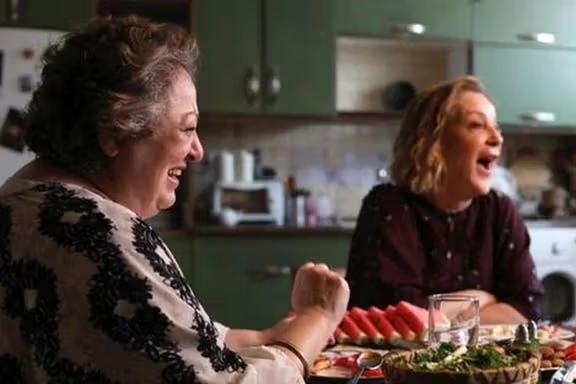Iran filmmakers defy state censorship despite repression

An increasing number of Iranian filmmakers are defying the country's strict ideological censorship by making movies without seeking the Culture Ministry's permission, for screening abroad.

An increasing number of Iranian filmmakers are defying the country's strict ideological censorship by making movies without seeking the Culture Ministry's permission, for screening abroad.
Many filmmakers are bypassing regulations requiring them to obtain approval at various stages of production, from screenplay inception to final screening and entry into international film festivals.
These new independent films challenge compulsory hijab rules, depicting Iranian women without the mandated headscarf, manteau, or chador, which covers the whole body. This defiance has grown, especially following the 2022 Woman, Life, Freedom movement and protests.
The films are made discreetly, and sometimes in secrecy, which has become possible due to new technologies that enable filming without cumbersome equipment and large reels of film. Transfer of electronic files also facilitate sending copies to international festivals.
Some Iranian actresses such as Taraneh Alidousti have been jailed or indicted and fined or barred from practicing in their profession for supporting the freedom movement and or removing their headscarves. According to the Iranian Human Rights News Agency, stage actress Pathea Bahram has not even been allowed to run an acting workshop for children.
Another actress, Layli Rashidi who ran a similar workshop for children in Dubai had her passport, cell phone and personal computer confiscated at the Tehran airport when she recently returned to visit her mother.
In the past two years, many Iranian film artists took part in the production of movies that are officially "illegal" while knowing that defying the censorship will land them in trouble.
One of the latest examples, “My Favorite Cake” won awards at the Berlin Film Festival in February and is now being prepared for international public screenings starting from Paris and Berlin.
This movie explores the relationship between an elderly couple. In approved Iranian films, actresses wear hijab even at home, which is unrealistic. Additionally, censored films avoid depicting women associating and drinking with men or discussing topics that are considered taboo under the Islamic government.
However, it is not the only Iranian film defying official censorship and government-imposed codes of conduct. In 2023 alone, two dozen such movies have been produced in Iran. These include "Earthly Verses" directed by Alireza Khatami and Ali Asgari, "Café" directed by Navid Mihandoust, "Achilles" directed by Farhad Delaram, and "Critical Zone" by Ali Ahmadzadeh.
These films depict the fact that most people in Iran are living a secular life under a fundamentalist Islamic government. They likely represent the 61 percent of the population who refused to participate in the country's recent stage-managed presidential election.
In interviews with foreign media, at least two actresses emphasized their commitment to independent filmmaking despite potential repercussions. Meanwhile, as the new government selected a new minister of culture, the House of Cinema, the Iranian filmmakers' trade union, objected to "the regulations for issuing filmmaking and screening permits." They criticized the government's treatment of filmmakers, arguing that it treats them like minors or insane individuals needing government direction, calling this attitude "regressive and unethical."
Earlier, Iranian film director Maziar Miri told Etemad Online, "All those who make films of social significance have been barred from filmmaking. Cinema was once important to government officials, but they no longer see it as a significant form of art." Miri added, "The officials want to make us angry and nervous so that we will leave the country."
In the latest Cannes Film Festival earlier this year, internationally acclaimed filmmaker Mohammad Rassoulof who was barred from leaving the country crossed the borders on foot and made it to the festival where his latest film, “The Seed of Sacred Fig”, was premiered and received international recognition. Like many other Iranian filmmakers, Rassoulof is now living in exile.